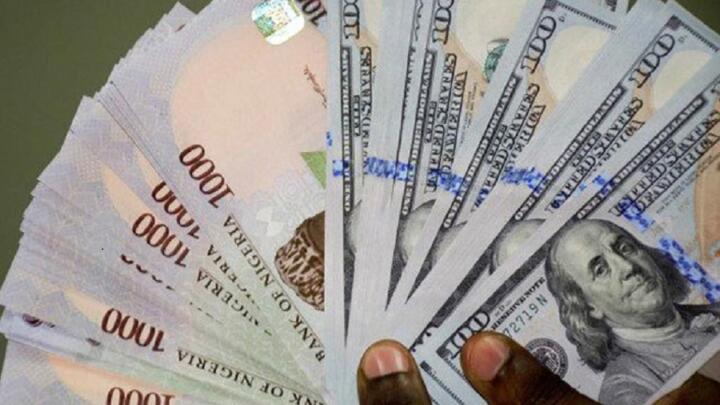Nigeria’s foreign exchange reserves have recorded a significant boost, gaining about $900 million within a three-day period, marking one of the fastest short-term increases seen in recent times. The surge, according to financial analysts and market watchers, reflects a combination of improved inflows from crude oil sales, increased investor confidence, and recent monetary and fiscal policy adjustments by the federal government.
Central Bank of Nigeria (CBN) data and market intelligence suggest that the sharp rise is largely attributed to higher oil earnings following improved global crude oil prices and enhanced domestic production. Nigeria, as Africa’s largest oil exporter, depends heavily on crude sales for foreign currency earnings. The recent increase in oil production volumes, aided by renewed government security measures in the Niger Delta to curb theft and vandalism, has positively impacted the country’s dollar inflows.

Additionally, the government’s ongoing reforms aimed at stabilizing the naira and attracting foreign investments have also contributed to the uptick. Measures such as the liberalisation of the foreign exchange market, unification of exchange rates, and efforts to clear forex backlogs have boosted foreign investors’ confidence. This has led to more portfolio investments entering the Nigerian financial markets, adding to the reserves.
Market analysts also point to recent Eurobond repayments by some state-backed entities and loan disbursements from multilateral lenders as part of the contributing factors. International development partners and lenders have continued to support Nigeria’s economic reform drive, providing budget support and project financing, which flow into the reserves.
The $900 million increase, achieved in just three days, is seen as a positive sign that the country is making progress in stabilizing its external accounts despite global economic headwinds. The reserves serve as a critical buffer for Nigeria’s economy, helping the CBN meet its obligations for imports, service external debts, and intervene in the forex market when needed.
Economists have welcomed the development, noting that improved reserves enhance Nigeria’s credit profile and can help reduce pressure on the naira. A stronger reserve position is also key to maintaining investor trust and moderating inflationary pressures that come from imported goods. However, experts caution that the growth must be sustained over the long term to yield lasting benefits.
Nigeria’s external reserves had come under significant strain in recent years due to fluctuating oil prices, lower production output, and heavy demand for forex by businesses and individuals. This led to a backlog of unmet forex obligations, causing exchange rate volatility and affecting businesses reliant on imports. The recent upward trend offers some respite and could signal a turnaround if supported by consistent policies.
Officials at the CBN have reiterated that they remain committed to policies that enhance liquidity and transparency in the forex market. Efforts are ongoing to attract more diaspora remittances and boost non-oil exports as additional sources of foreign exchange inflows. The Nigerian Export Promotion Council (NEPC) has also been actively pushing initiatives to grow the nation’s non-oil export base, which will further diversify forex earnings.
Financial experts, however, stress the need for caution, noting that while the rise is impressive, Nigeria’s import bill and external debt servicing obligations remain high. The country still faces structural economic challenges, including inadequate infrastructure and dependence on imports for refined petroleum products and essential goods. Addressing these bottlenecks is critical to ensuring that gains in foreign reserves translate into broader economic stability.
The reserves boost also coincides with a period of renewed investor interest in Nigerian debt instruments, as the federal government has issued attractive treasury bills and bonds to raise funds for its budgetary needs. Higher yields have attracted foreign portfolio investors seeking better returns in emerging markets, contributing to forex inflows.
Stakeholders in the financial sector believe that if Nigeria continues to strengthen its macroeconomic fundamentals, foreign reserves could grow further in the coming months. Policies targeted at enhancing oil production, reducing theft and pipeline vandalism, encouraging foreign direct investment, and supporting local industries are seen as vital components of this strategy.
In the medium term, sustaining the momentum of the reserves growth will require disciplined fiscal management and improved export diversification. Economic experts advise that Nigeria should use this window to implement deep structural reforms that can drive non-oil revenue, enhance manufacturing, and reduce dependency on imports.
The $900 million jump within three days underscores the potential for Nigeria to rebuild its reserves and stabilize its economy if the current reform trajectory is maintained. Investors, businesses, and policymakers will be closely watching the trend to see if the CBN can build on this momentum to achieve lasting improvements in the country’s external reserves position.
Support InfoStride News' Credible Journalism: Only credible journalism can guarantee a fair, accountable and transparent society, including democracy and government. It involves a lot of efforts and money. We need your support. Click here to Donate
